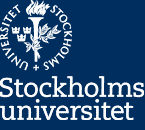(PhD course, Spring 2022) | ||||||||||||||||||||||||||||||||
|---|---|---|---|---|---|---|---|---|---|---|---|---|---|---|---|---|---|---|---|---|---|---|---|---|---|---|---|---|---|---|---|---|
|
| ||||||||||||||||||||||||||||||||
News
| ||||||||||||||||||||||||||||||||
| ||||||||||||||||||||||||||||||||
Brief description
| ||||||||||||||||||||||||||||||||
|
We learn some fundamental properties of the spectra, in particular eigenvalues and eigenfunctions, of partial differential equations such as the Laplace or Schrödinger equations on Euclidean domains and manifolds. After a thorough introduction we focus on the relation between the spectrum and the geometry of the underlying space and go through classical results such as the Faber-Krahn inequality or the counter example to Mark Kac' famous question "Can one hear the shape of a drum?". The course does not require any preknowledge on spectral theory or any deeper prerequisites on partial differential equations. Everything will be introduced on the spot as it is needed. Prerequisites: Good knowledge of standard analysis and linear algebra; some basic knowledge of functional analysis and operator theory is useful. | ||||||||||||||||||||||||||||||||
Schedule
| ||||||||||||||||||||||||||||||||
| ||||||||||||||||||||||||||||||||
Lectures
| ||||||||||||||||||||||||||||||||
| ||||||||||||||||||||||||||||||||
Practical
| ||||||||||||||||||||||||||||||||
|
Three problem sets to be handed in will be published during the course. Sheet 1, Sheet 2, Sheet 3. | ||||||||||||||||||||||||||||||||
Exam
| ||||||||||||||||||||||||||||||||
|
Examination takes place through problem sheets and a presentation. Both can be done in groups of two or alone. In order to pass the course it is required to
| ||||||||||||||||||||||||||||||||
Literature
| ||||||||||||||||||||||||||||||||
| ||||||||||||||||||||||||||||||||
Contact
| ||||||||||||||||||||||||||||||||
|
Jonathan Rohleder | ||||||||||||||||||||||||||||||||
